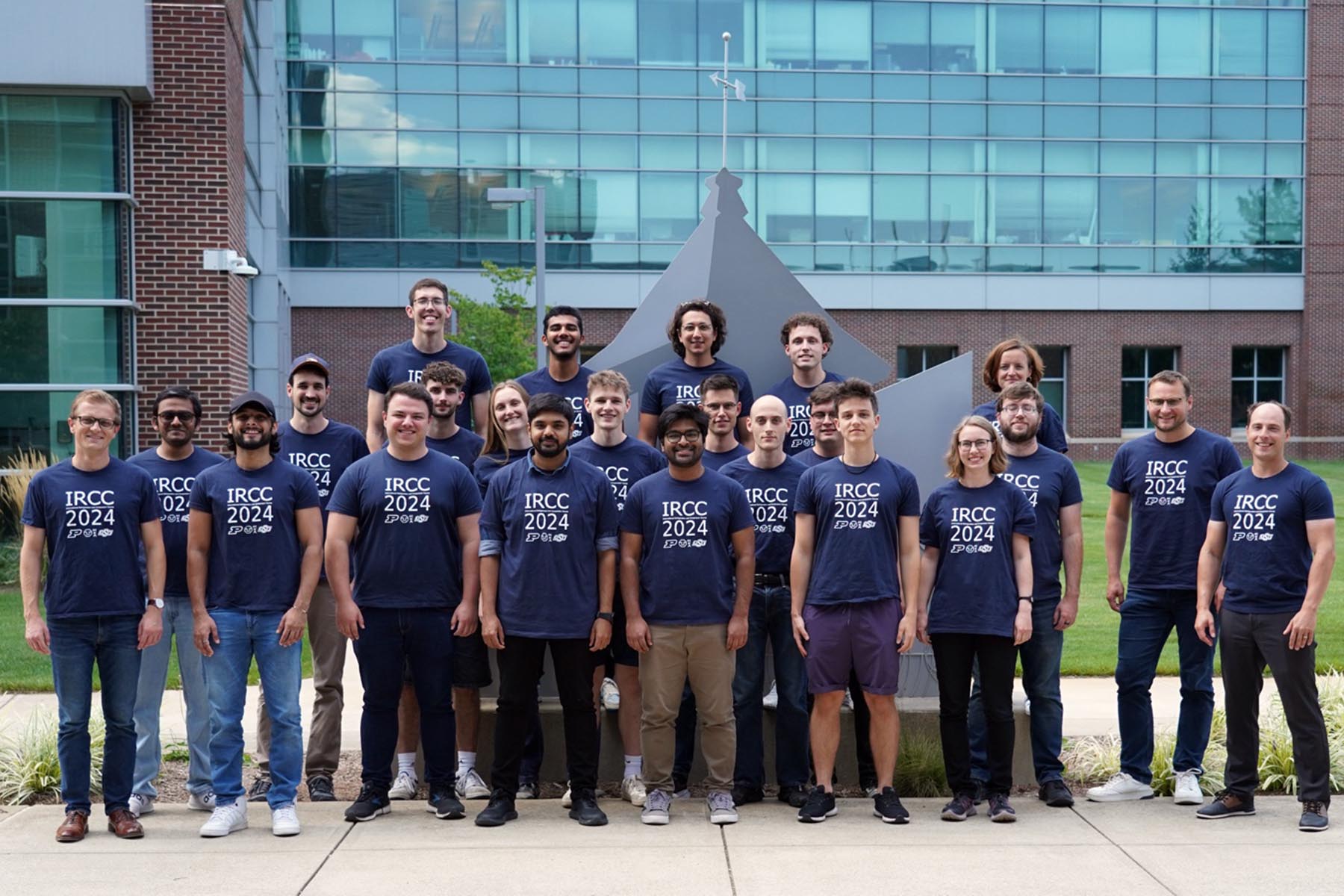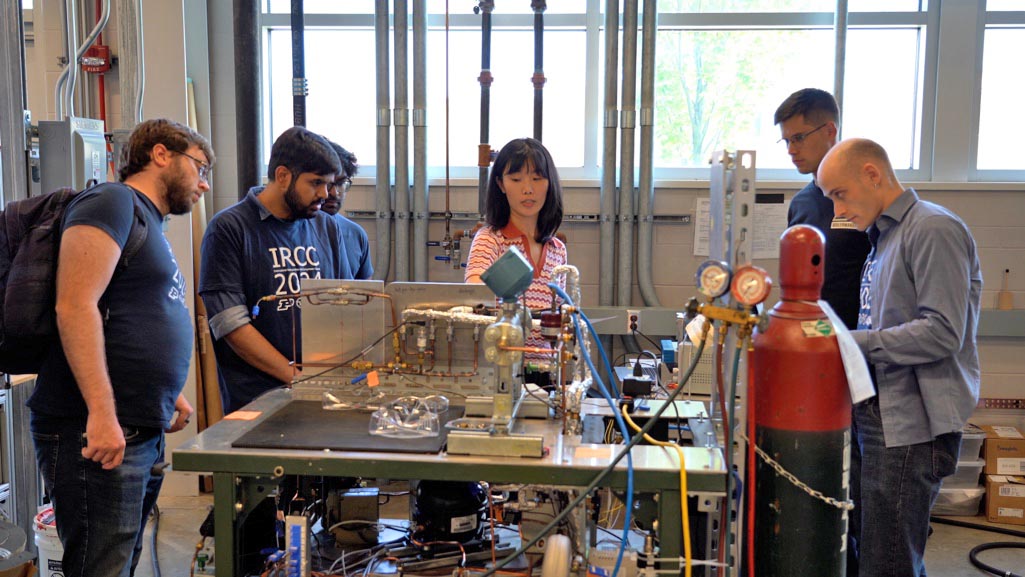Cooling across cultures: the International Refrigeration and Compressor Course
With increasing global energy and environmental challenges, international collaborations on energy systems and educational programs are more vital than ever. To address these needs, Herrick Labs has hosted a unique cross-cultural learning experience, which includes graduate students from Purdue University, Oklahoma State University (OSU), Technical University of Dresden (TU Dresden), and Karlsruhe University of Applied Sciences (HKA).

The International Refrigeration and Compressor Course (IRCC) started in 2016 with Eckhard Groll and Orkan Kurtulus (Purdue) in tandem with Ullrich Hesse and Christiane Thomas (TU Dresden). The vision of the IRCC was, “… to create a master’s level course in refrigeration and compressors,” as stated by Eckhard Groll, Reilly Professor and William E. and Florence E. Perry Head of Mechanical Engineering. American students travel to Germany and spend a week with their classmates in Dresden, touring through manufacturing plants and laboratories. Then students are teamed up during the summer – one from the US, one from Germany – to work on a theoretical design project involving refrigeration and compressors, which they present jointly at Purdue.
Since its first edition in 2016, the IRCC has been further expanded to include the HKA and Oklahoma State University (OSU), led by Robin Langebach and Craig Bradshaw, respectively. By including these institutions, the course provides additional engineering insights on relevant topics, expands the diverse cultural and research backgrounds, as well as provides the opportunity to visit additional labs during the two in-person weeks.
The projects that the teams are tasked with address practical challenges with future-relevant systems and working fluids. For example, a heat pump using low-Global Warming Potential (GWP) refrigerants, or a shipping container using naturally occurring working fluids as a refrigerant to allow the project scope to be relevant to both US and European refrigeration markets and education systems.
The German week is co-hosted by the Schaufler-Chair at TU Dresden, now led by Christiane Thomas, and the HKA and entails time split between the two German cities. This allows students to see two different sides of the country, along with two different laboratories, as well as the chance to visit the SCHAUFLER Academy and a state-of-the-art BITZER screw compressor factory. The US week, co-hosted at Purdue by Riley Barta and Davide Ziviani, runs similarly and includes an industry visit to Carrier Corporation, providing a complement to the German industry and lab visits so that the students can experience both and compare and contrast them.

“The IRCC is an immersive cultural and technical experience,” Bradshaw said. “The residential weeks are like a summer camp filled with social events, excursions with industry partners with a theme of energy and sustainability. The students absolutely love it. I have yet to hear from any student that this wasn’t their favorite course they have ever taken.”

The 2025 IRCC will return to the TU Dresden and HKA for the German week, and the US week will be co-hosted by Purdue University and the University of Illinois Urbana Champaign (UIUC). The IRCC in 2025 will involve the University of Illinois Urbana Champaign transitioning in and Oklahoma State University transitioning out due to Craig Bradshaw’s new position at UIUC. Purdue students will be supported by the Center for High Performance Buildings (CHPB) at the Ray W. Herrick Laboratories.
Read this flyer to learn more about IRCC for summer 2025, or contact Riley Barta to apply.
Source: Riley Barta, bartar@purdue.edu and Davide Ziviani, dziviani@purdue.edu
